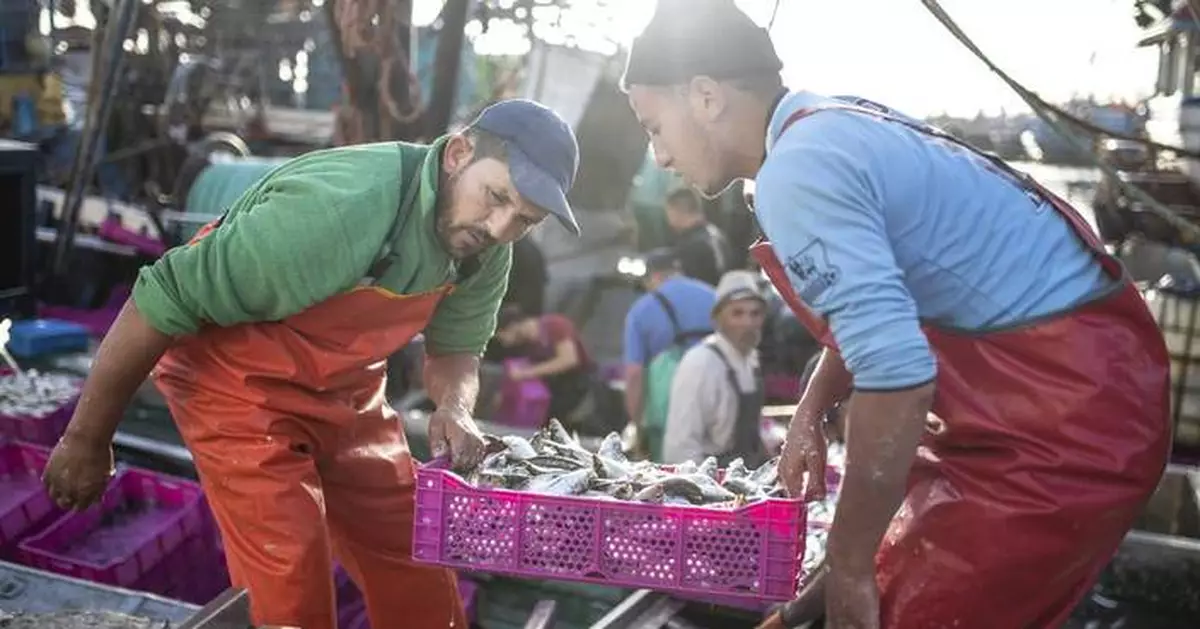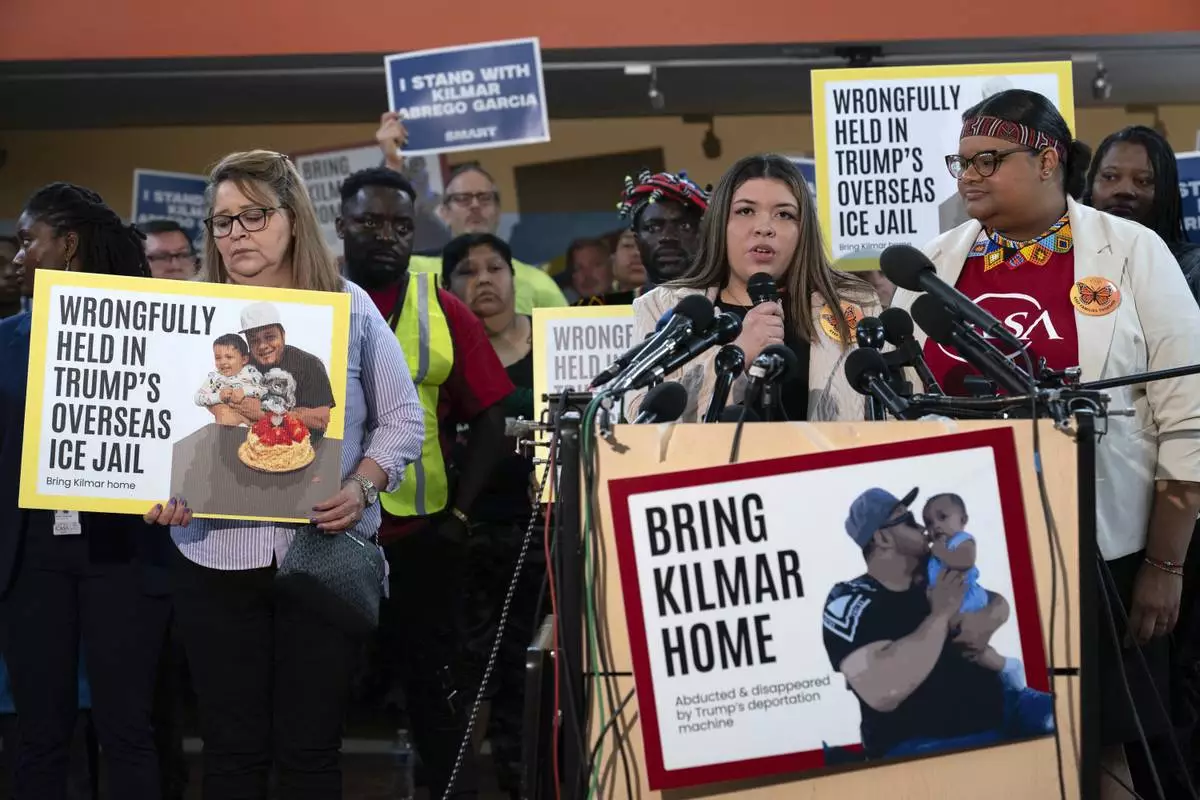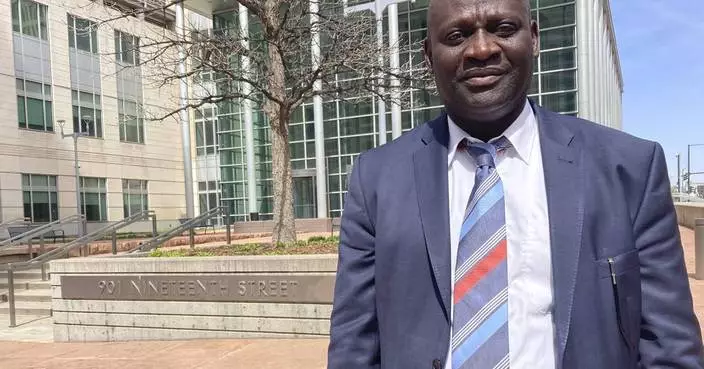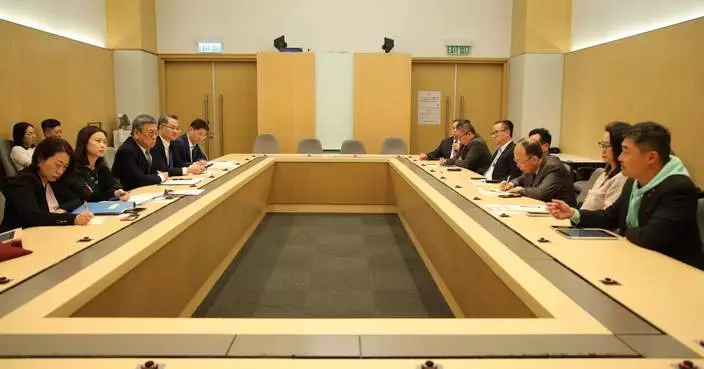BRUSSELS (AP) — The European Union’s top court ruled Friday that fisheries and agriculture agreements reached between the bloc and Morocco five years ago failed to include consultations with the people of Western Sahara.
Western Sahara sits on the Atlantic coast and has a desert rich in phosphates. Morocco annexed the former Spanish colony in 1975, sparking a conflict with the pro-independence Polisario Front. The United Nations considers it a “non-self-governing territory.”
The status of the Western Sahara is among the most sensitive topics in the North African kingdom. Morocco considers the vast territory as its “southern provinces” and fiercely defends against anything it considers to be a threat to its territorial integrity.
In its definitive ruling in the case, the European Court of Justice said that for the 2019 EU-Morocco farm and fisheries agreements to enter force, they “must receive the consent of the people of Western Sahara. However, such consent has not been given in this instance.”
It said the deals “were concluded in breach of the principles of self-determination and the relative effect of treaties.”
The Luxembourg-based court dismissed “in their entirety” legal appeals by the EU’s executive branch and the council representing the 27 member countries.
The fisheries agreement laid out where European vessels with Moroccan permits could fish and included Moroccan-controlled waters west of the disputed territory. The four-year accord has already expired, so the court’s decision will only influence future agreements.
The court acknowledged that the EU institutions had launched a consultation process before concluding the agreements, but said this involved people who were present in the territory, “irrespective of whether or not they belong to the people of Western Sahara.”
It noted that “a significant proportion of that people now lives outside that territory.”
Morocco controls the vast majority of the territory under dispute, while many of its people now live in refugee camps in southeastern Algeria. Moroccans who have moved to Western Sahara from regions further north now outnumber indigenous Sahrawis in the disputed territory.
The Polisario Front's representative to the United Nations and international organizations in Geneva, Oubi Bouchraya, welcomed the ruling.
“The court sent a legal strong message to the political power and mainly France and Spain, that Morocco and Western Sahara are distinct and separate territories, and that Morocco has no sovereignty over territory," Bouchraya said in a statement.
“It is a big victory for the people of Western Sahara in their quest for self-determination and independence and a painful coup for Morocco and its economy of occupation," he added.
Morocco Foreign Ministry accused the court of ignorance and bias, and said it was entitled legal certainty regarding its agreements with the European Union. It further said that Morocco does not abide by "any agreement or legal instrument that does not respect its territorial integrity and national unity.”
In a statement, EU Commission President Ursula von der Leyen and the bloc’s top diplomat Joseph Borell said they would analyze the ruling but intended to maintain and expand the bloc's ties with Morocco.
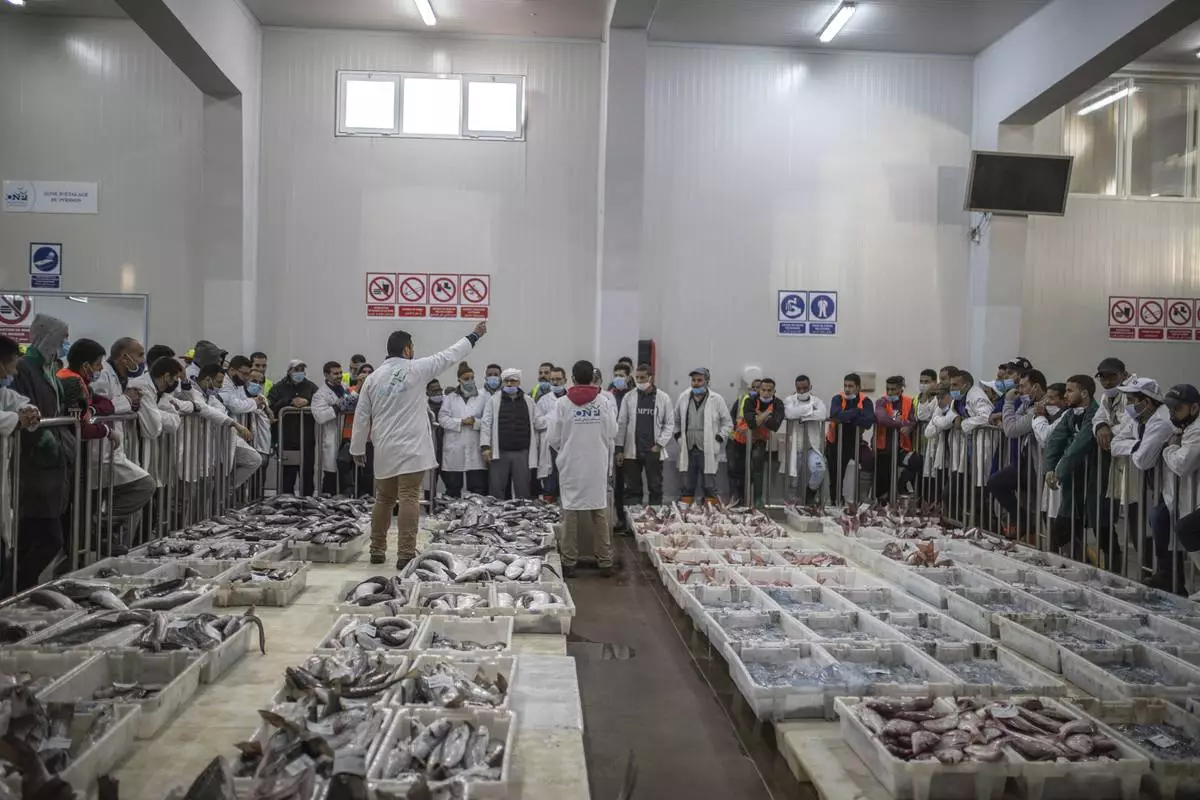
FILE - Fish is displayed for merchants during an auction at the main port in Dakhla city, Western Sahara, Monday, Dec. 21, 2020. (AP Photo/Mosa'ab Elshamy, File)
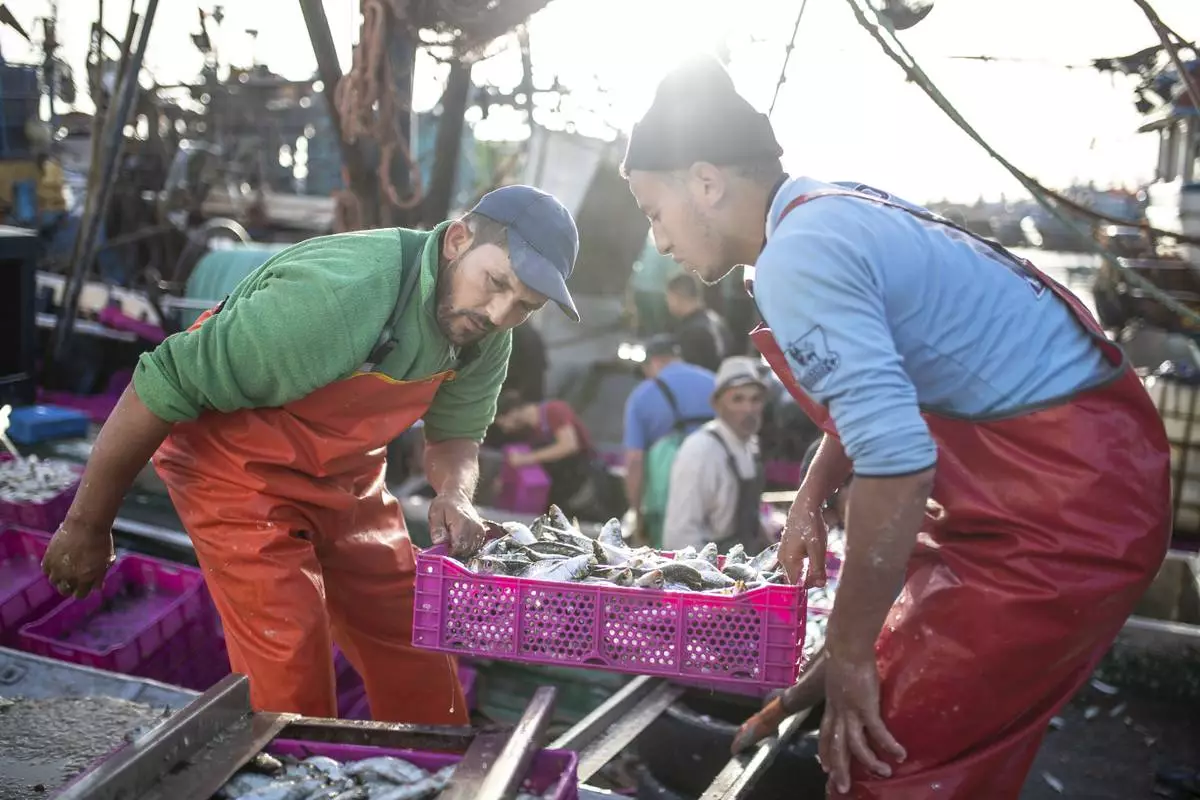
FILE - Fishermen transport their catch after docking in the main port in Dakhla city, Western Sahara, Monday, Dec. 21, 2020. (AP Photo/Mosa'ab Elshamy, File)


